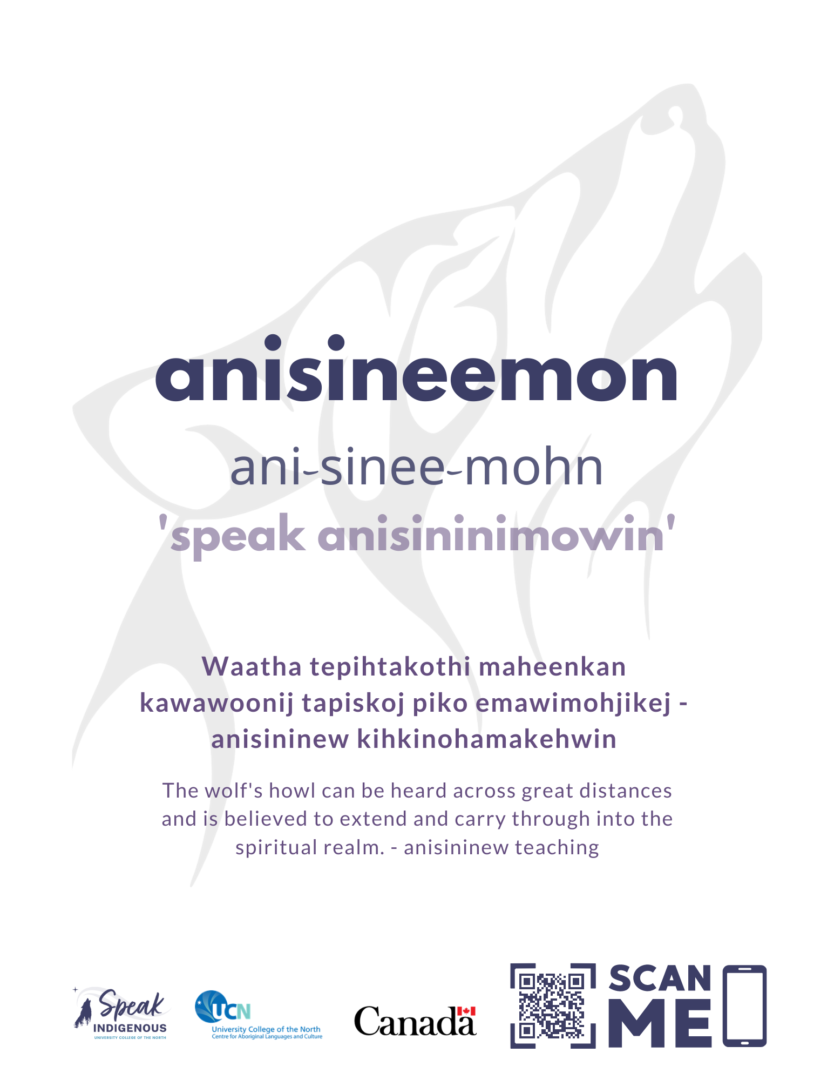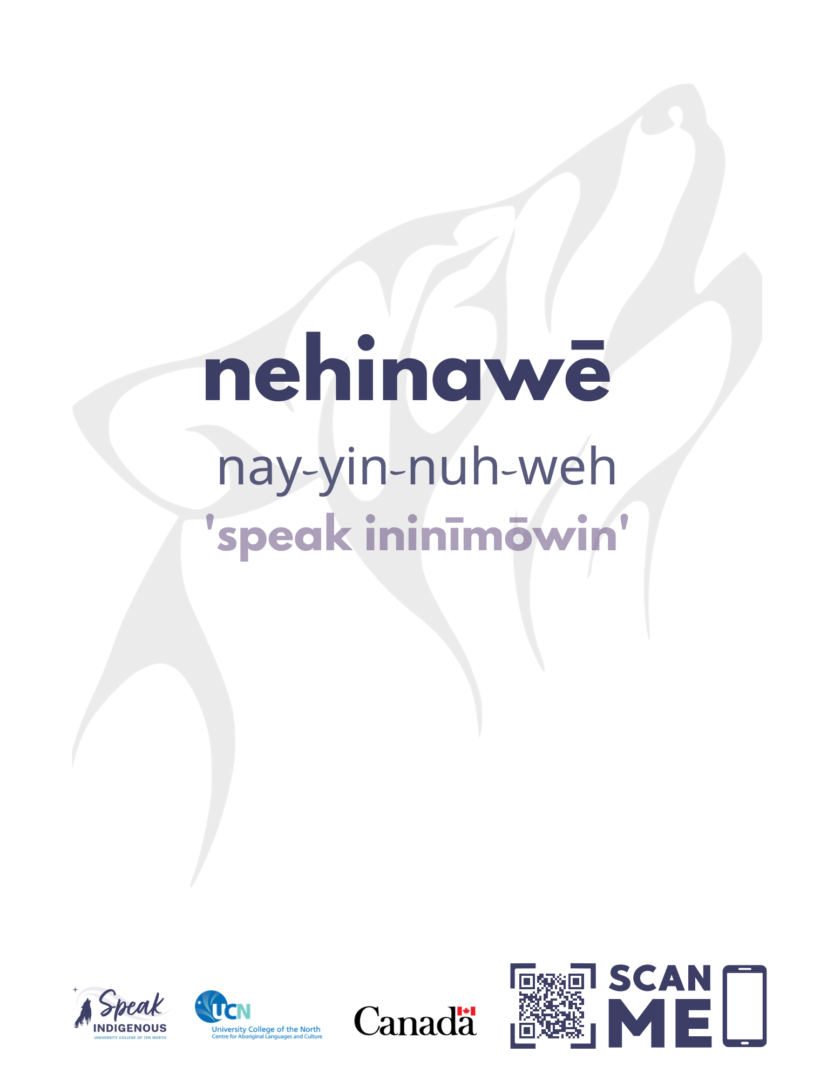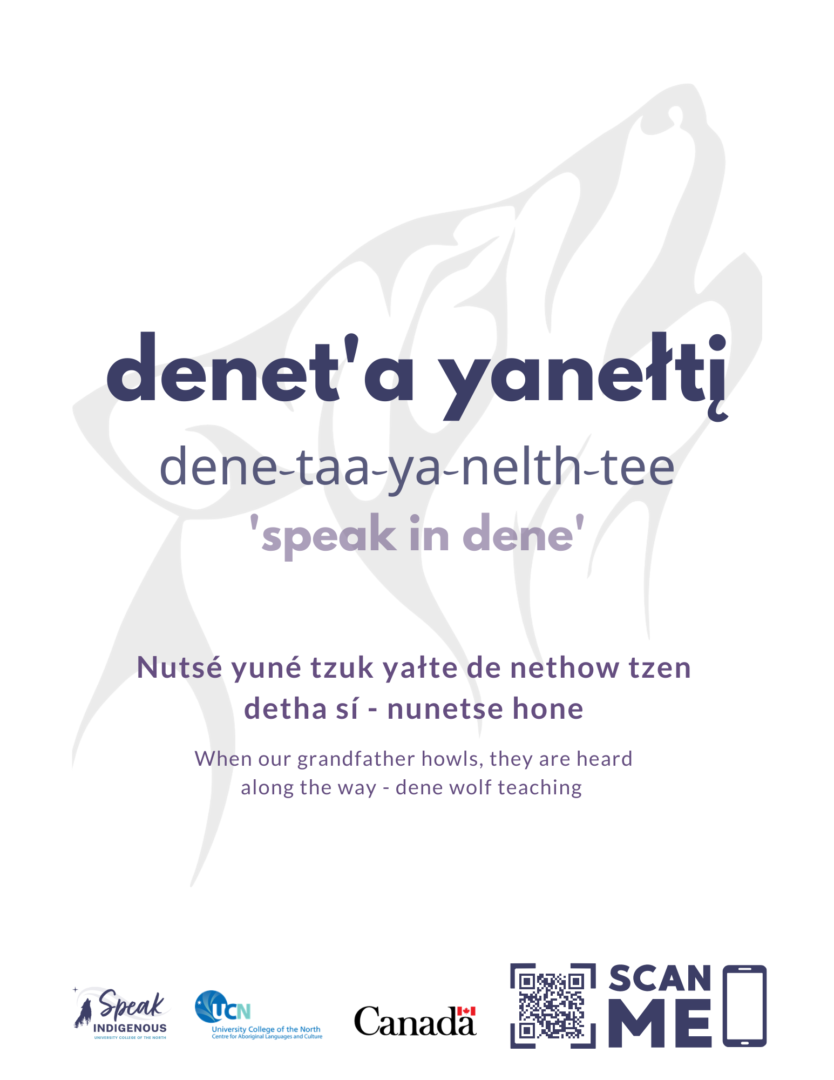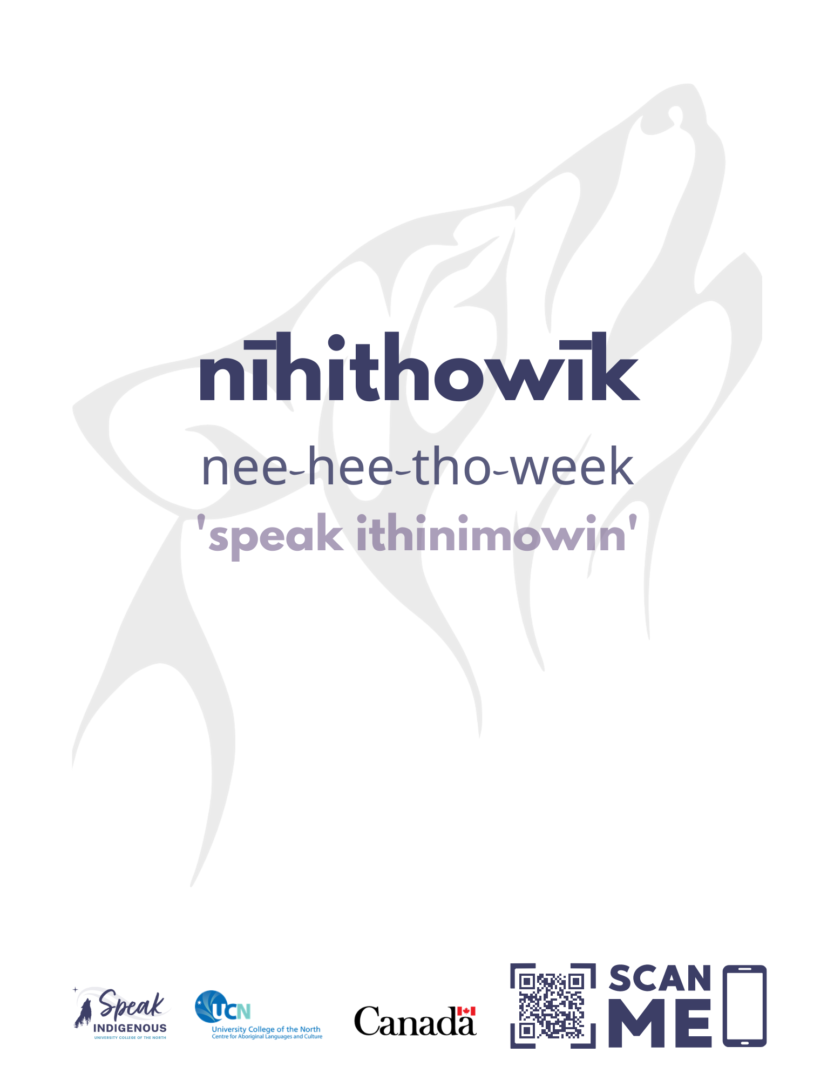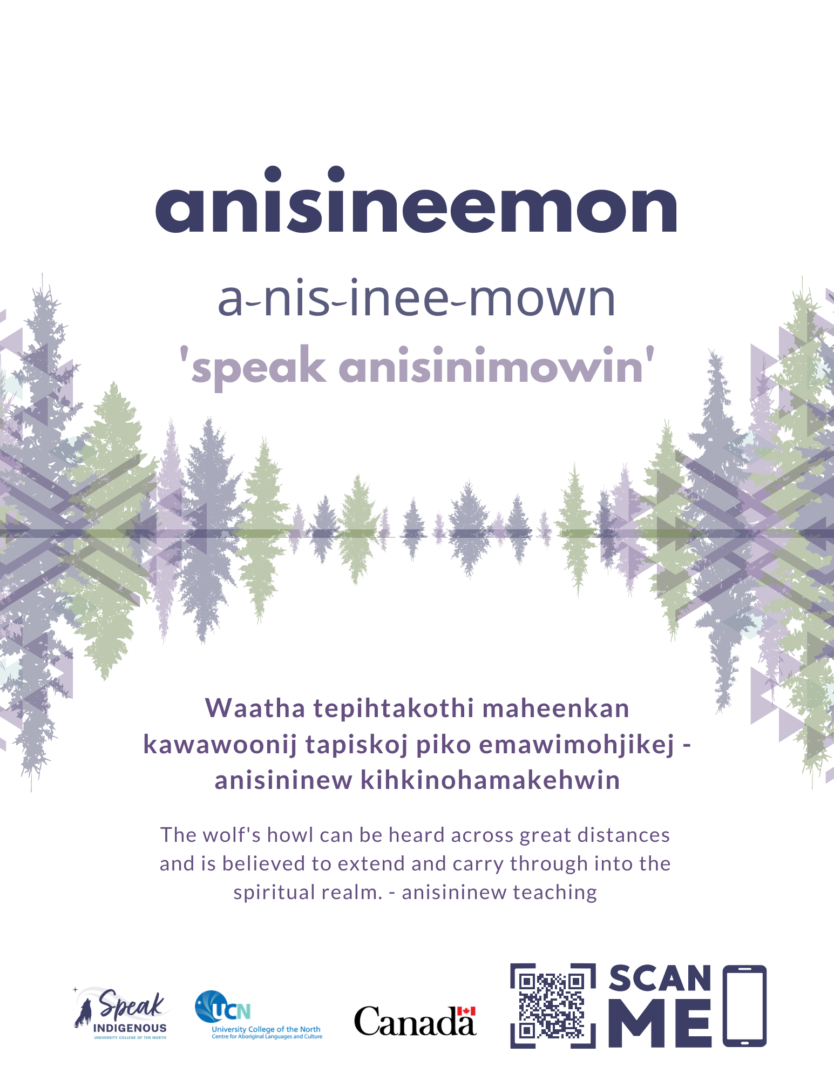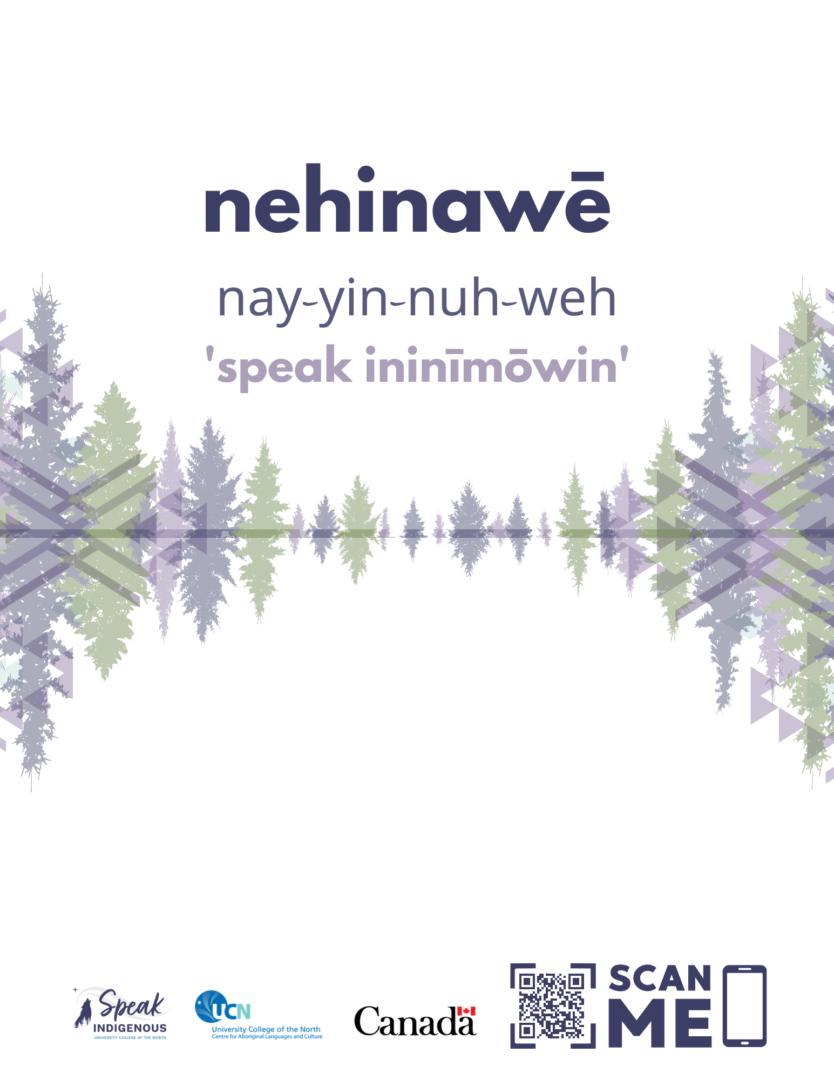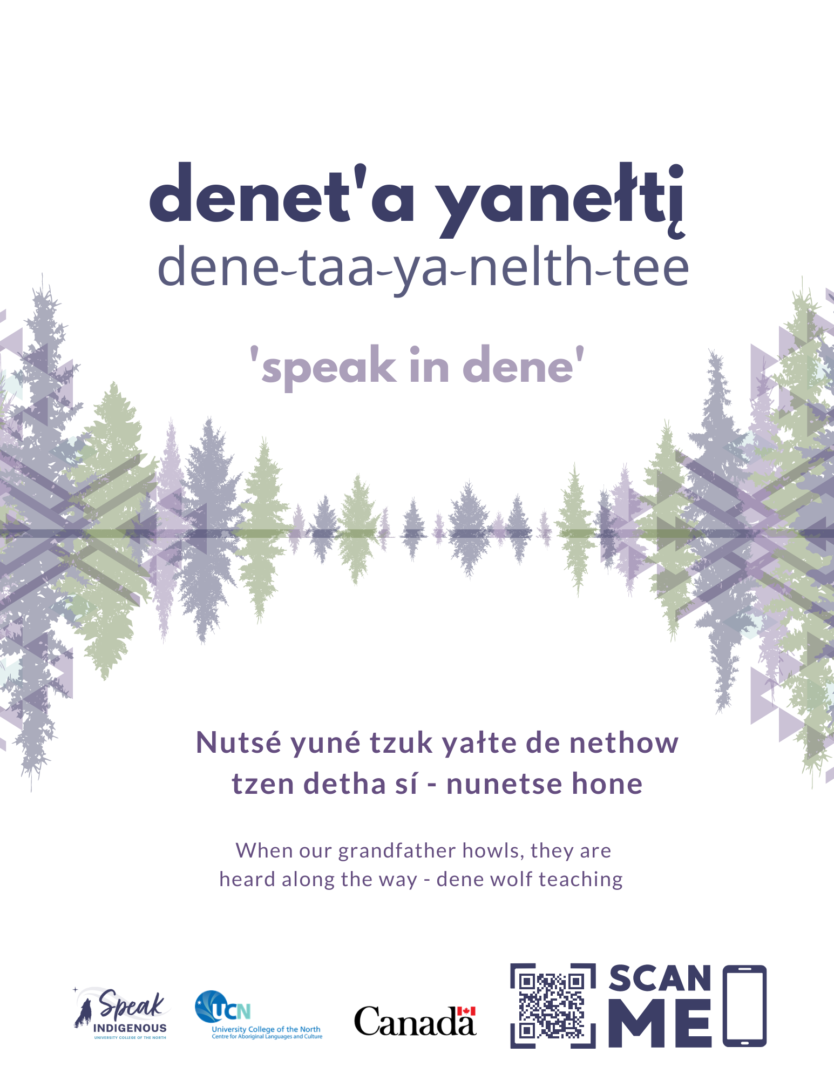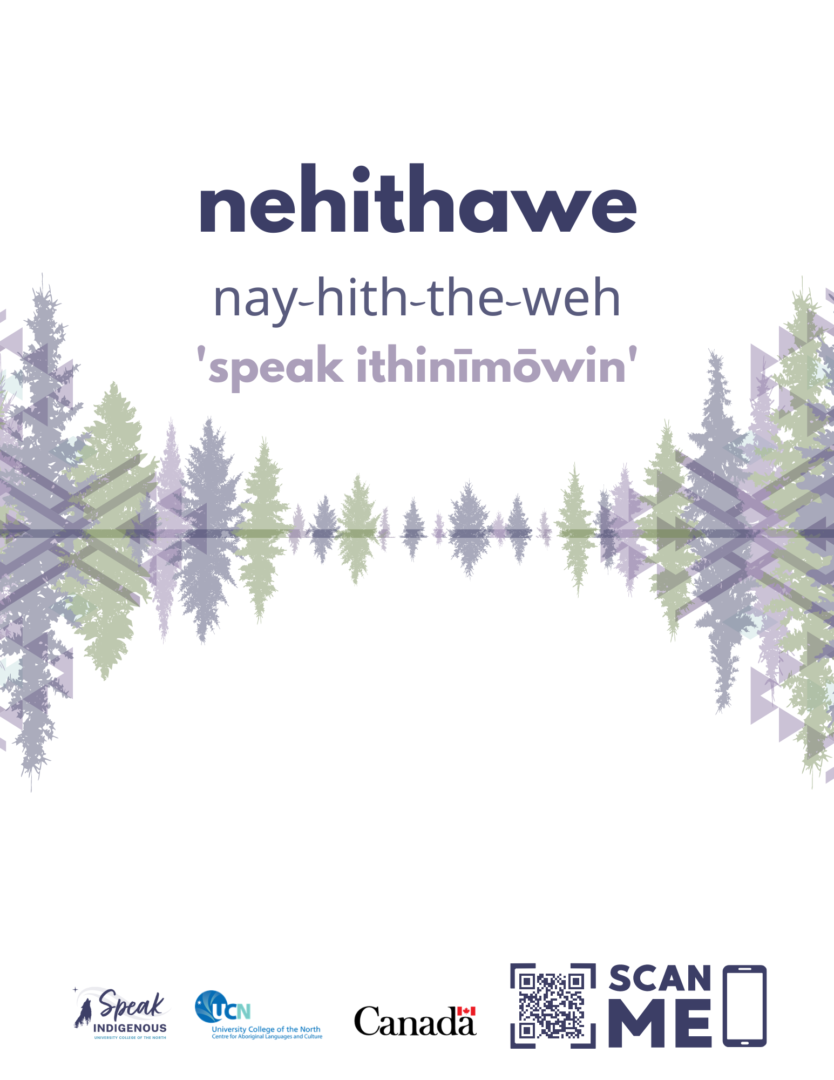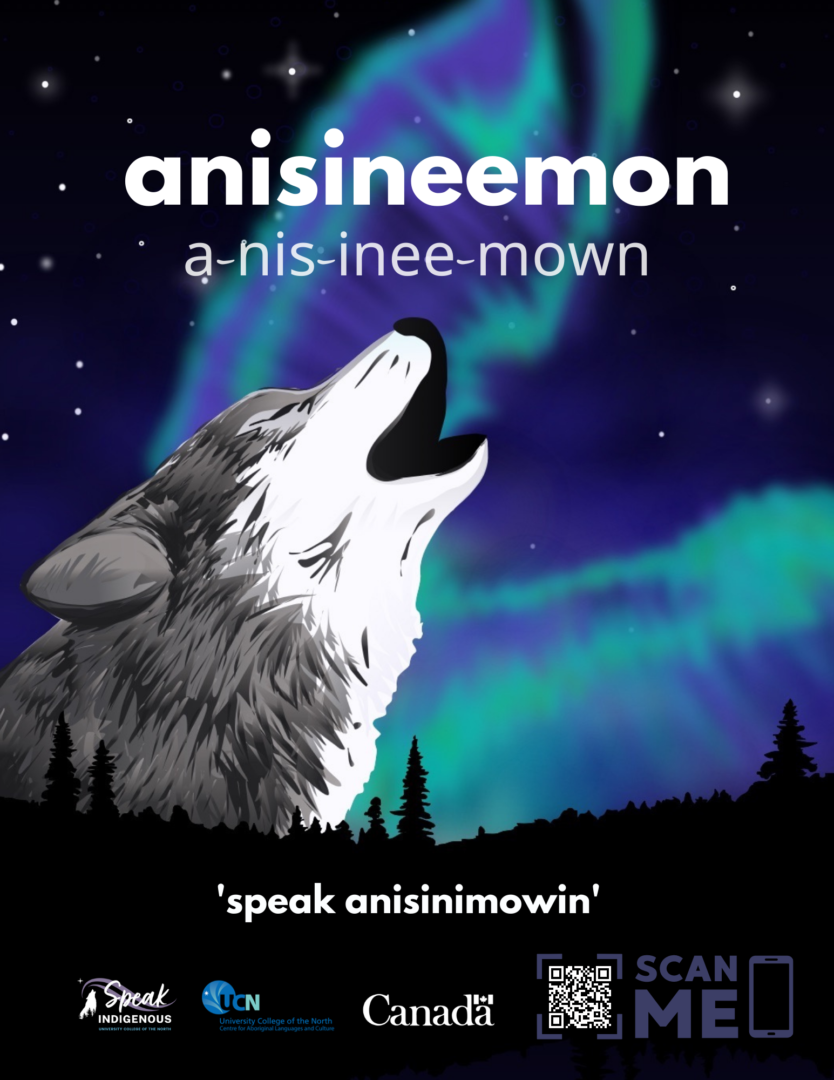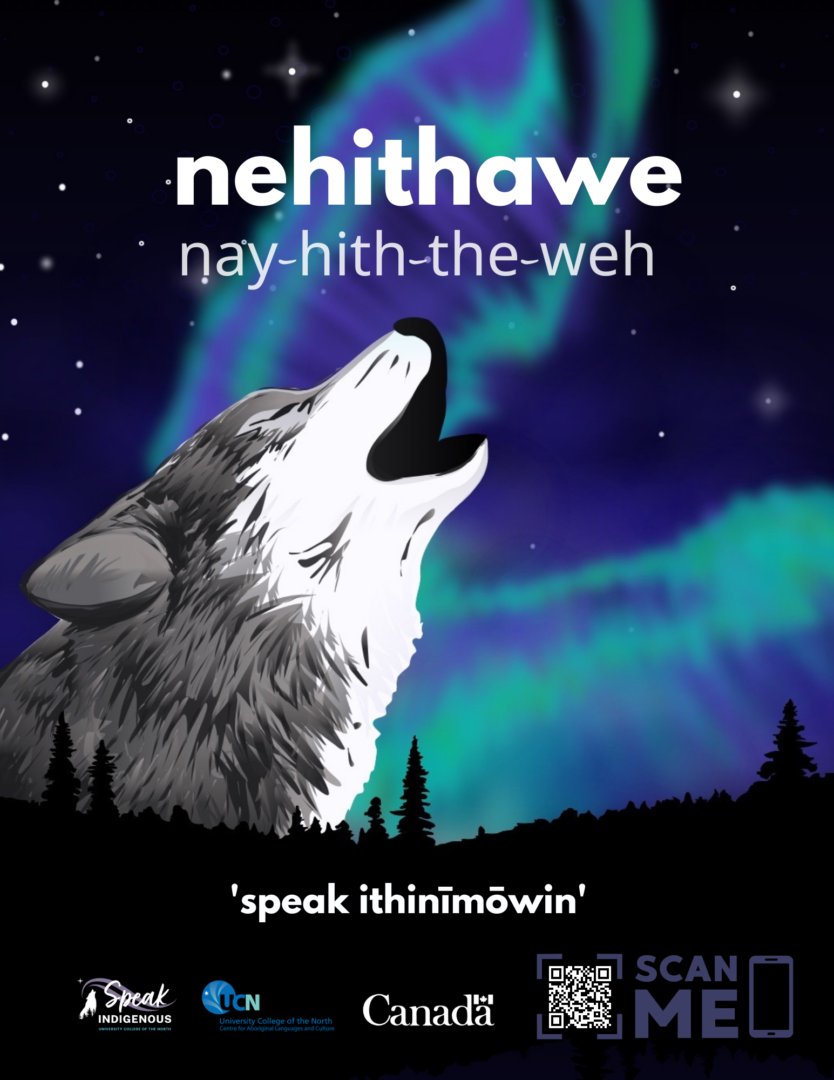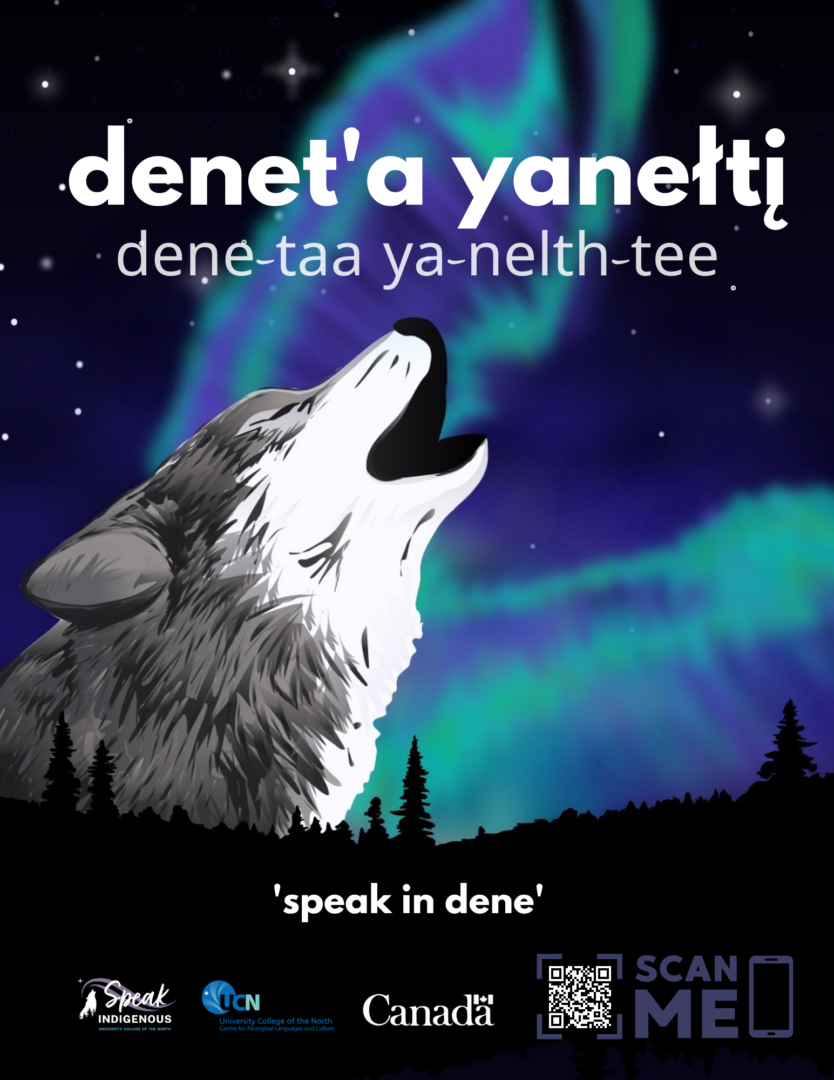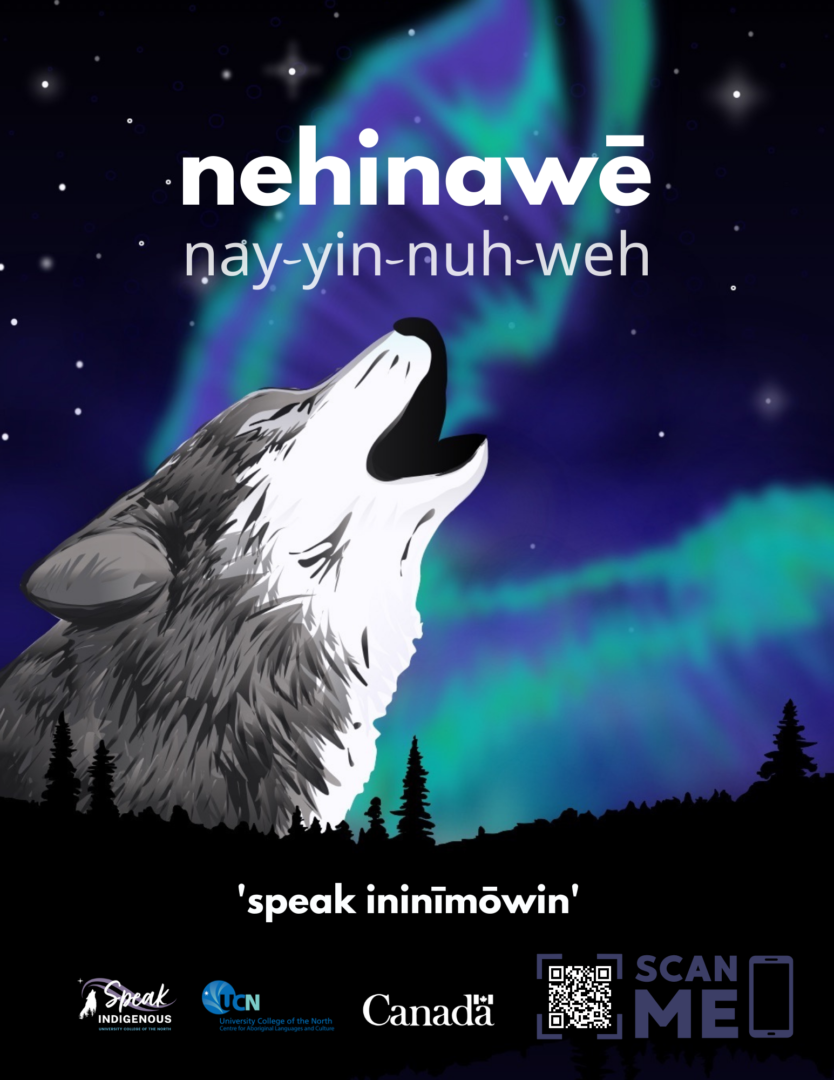All of our voices matter, whether experienced or brand-new speakers and learners, and whether Indigenous or non-Indigenous people. Creating welcoming and safe spaces for Indigenous languages is essential for creating a new generation of language speakers. The following resources can help spark discussion about the importance of Indigenous languages.
The posters have been developed with language keepers from Northern Manitoba and reflect unique and diverse language groups and dialects. Posters can be downloaded and printed for use in all spaces to promote and support Indigenous languages.
“The [Speak Indigenous] language campaign is intended to promote awareness and to advocate for the creation of safe spaces for our languages. Our message is for everybody, from new language learners, to Indigenous peoples who connect with and have pride in their identities, to businesses and organizations”
For Educators:
Create a positive space: create a positive learning environment and tone by putting care into the cleanliness and arrangement of furnishings and by using current and respectful/culturally appropriate visuals
Start small: begin with everyday greetings and phrases (hello, thank you, good night) followed by simple concepts: family members, animals, colours, command verbs (sit down; come in; eat)
Make it fun: remember to laugh and be creative; the best learning happens when joy is present
Discover and embrace where you are: discover the language groups and the original place names in your region
Honour and respect Indigenous perspectives and concepts: remember that learning any language, including an Indigenous language, represents another and a different way of seeing and understanding the world
Avoid making assumptions: get to know Indigneous peoples and Indigenous language speakers in your region by asking questions
Learn about the language: get curious about Indigenous languages/structures/concepts; Indigenous languages are extremely varied and unique and have little in common with English or French
Practice courage: invite Elders, knowledge keepers and language speakers into your learning environment at least once a month
Respect and acknowledge diversity: get to know your Elders and language speakers; many have valuable knowledge
Invest in language learning: build language learning-related activities into annual budgets
Include cultural activities: integrate cultural activities into your learning environments
Connect with Indigenous communities: reach out to community leaders and attend public events
Be authentic: be open-minded and open-hearted
Recognize cultural and linguistic diversity: Indigenous cultures and languages are abundantly diverse; try to avoid generalizations
Recognize and acknowledge your helpers: give credit to those who provide cultural and linguistic guidance
“[Our work] requires making safe spaces for languages to be spoken…we want, we need [people] to speak”
Starlett Beardy
For Non-Indigenous Peoples:
Practice Wahkotowin (relationship building): build community by establishing relationships
Your voice matters: recognize opportunities to participate in positive change
Practice intentionality: be open-minded and think before you speak and act
Practice respect: be curious about and open to learning Indigenous social norms, customs and practices that may be different from your own
Be aware of culturally-based non-verbal cues such as body language and silence: some people may refrain from confronting you if you are being offensive or disrespectful but may instead avoid looking you in the eye or remain quiet
Practice kindness: learning best takes place in the presence kindness, gentleness and courtesy
Know your history: learn about specific interactions with Indigenous peoples in the places you live or have lived
Recognize your own assumptions: adopt a learning attitude by acknowledging your own biases and lack of knowledge
You may not know what you don’t know: practice honesty and humility about what you know and do not know; ask questions
Things might get uncomfortable: when you encounter difficult truths about Canadian history, talk about it and remember that we can work through it together
Make room for difficult conversations: be open to discussing cultural differences and different points of view in a respectful way by sharing experiences
Speak less and listen more: develop comfort with silence and create space for everyone’s voice to be heard by allowing for pauses in conversations with Indigenous peoples
Educate yourself: attend community events, get to know community members, and seek answers to your questions by learning about Indigenous resources and resource people in your area
“[Some] people are scared to make a mistake or fear being laughed at. I just encourage people: don’t worry about it, keep trying, keep trying. I start off any conversation with the language to promote safety and to recognize and honour the language”
Tanya Dawn McDougall

